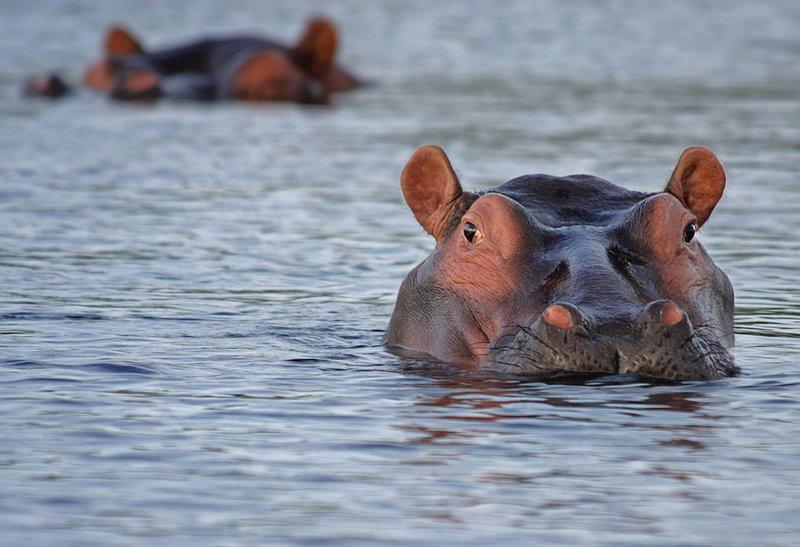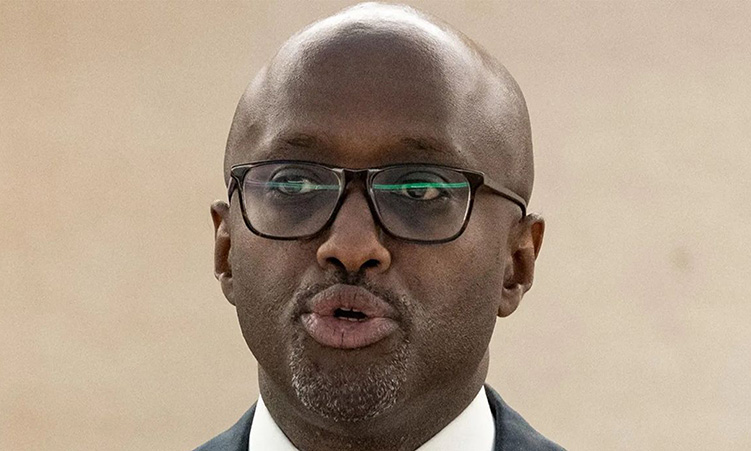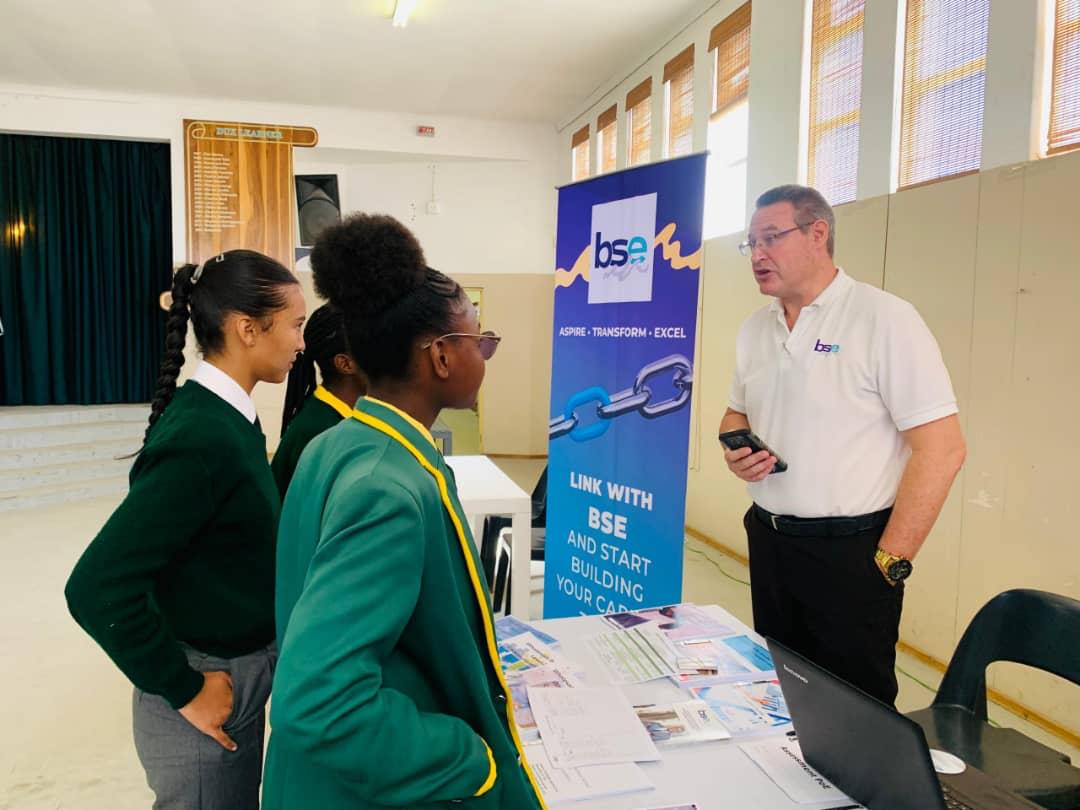THERE has been much debate recently regarding the role of journalism in Namibia.
Former Prime Minister Hage Geingob warned journalists to “tell the truth and nothing but the truth”, and stated that, in his opinion, “the press is there to report positively on events.” (The Namibian, Feb 19, 2008).Ironically, Dr Geingob proudly noted that “no single one of those Namibian journalists have been arrested”, and went on to single out Hannes Smith of the Windhoek Observer for criticism.In fact, Hannes Smith is the only journalist since Independence to have not only been charged with a crime (contempt of court) but to have served a (short) prison sentence.And the issue for which he went to jail (failure to reveal his sources) remains a bone of contention for Namibian journalists today.Unfortunately, after 17 years of independence, there remains a gap between the ‘freedom of speech’ espoused in the Constitution, and the application of antiquated laws that force journalists to reveal their sources, something which, as Smith rightly said, would be “one of the worst crimes a newspaperman can commit.”So where do the media stand? What is the role of media in a developing country such as ours ? On one hand media are urged by governments to promote national cohesion and prioritise stories and images that demonstrate national unity.Minister of Information and Broadcasting, Netumbo Nandi-Ndaitwah, announcing her intention of introducing a Government media council, noted that “the media has the power to contribute to our nation building and socio-economic development.”(The Namibian, Feb 8, 2008).However, in an editorial responding to these comments (February 29 2008), Gwen Lister, editor of The Namibian, reminded that while the media have rights and responsibilities, those responsibilities “are towards the people … and not towards the Government of the day.”As Dr Geingob himself often used to say, the Namibian nation is a house built with bricks.Remove one brick (by publishing ‘damaging’ stories, for instance) and the entire structure might fall.Some media therefore resort to what the late Zimbabwean journalist William Musarurwa called “minister and sunshine journalism”.Following this model, ministers opening clinics, schools or shopping centres would dominate the headlines.On the other hand, the High Court, in a landmark judgement (Fantasy Enterprises v Minister of Home Affairs 1996) made it clear that the Namibian media had a duty to probe and to ask difficult questions – to provide a platform for democratic debate and a ‘vent’ for people’s opinions.Dr Geingob himself will remember one of the reasons for introducing ‘PM’s Question Time’ on NBC Radio was that, as Prime Minister, he needed to hear what citizens were saying, and letters from them to the programme gave essential feedback.News stories of underachievement, corruption, nepotism or failure of government policies are not only what the public need, but are vital in pointing out where the nation needs attention – for directing, assisting efforts towards achievement of national goals.Perhaps, as Tawana Kupe suggests, media (party, government or private) need to find some sort of common ground – “a balance between an affirmation of positive developments … and highlighting those tensions that signal that all is not well.”(‘African media since Ghana’s independence’, 2007: 141).Some argue that the danger is an increasing trend towards what one journalist has called ‘churnalism’.Nick Davies (Flat Earth News, 2008) believes that media are no longer strong and vibrant searchers after that elusive ‘truth’.Instead, they often fail to check the most basic of untruths (or incomplete truths) given by the company, industry or even minister.They are susceptible to spin of the most blatant nature.Rather, and often because of understaffing and time pressures, they simply grab the press release or speech and publish verbatim.There also seems to be confusion about what news actually is.News should be, as the Minister correctly states, objective, honest, accurate, balanced, and, within all possible degrees, true.Indeed, the MISA Namibia code of ethics highlights all of these factors, also encouraging fair treatment of minorities such as children, gays, disabled, and, importantly in the current climate, opinions of smaller political parties.No media editor in their right mind would tolerate ‘lies’ to be published, for, in the long term, it would lead to the publication losing all credibility and, thus, sales.The existing laws on defamation provide ample recourse to those aggrieved by ‘untrue’ reporting.Because of this, all media publish or broadcast corrections where errors are made.After all, journalists are also human.But the ‘untruths’ that media are being accused of are, in the vast majority, not news at all.They are letters to the editor, editorial comments (or The Namibian’s ‘Political Perspective’), columns by writers, analysis pieces (like this one), or other items of a subjective nature.This needs to be seen as opinion rather than fact, subjective rather than objective writing.In other words, when reading a newspaper, we need to understand the clear difference between fact (news stories) and opinion (editorials, columns, letters, SMS messages, etc).We must empower ourselves to become involved in the debate.We need to foster our democratic heritage and become active voices in these debates.If we disagree with a caller, phone in to the radio show.If we don’t agree with a letter writer or columnist, write to the newspaper.Let us use the existing media platforms, not as propaganda machines of ‘sunshine journalism’, but as communication marketplaces where we can meet, talk, and, finally perhaps, agree to disagree.* Robin Tyson is Lecturer in Media Studies at the University of Namibia.(The Namibian, Feb 19, 2008).Ironically, Dr Geingob proudly noted that “no single one of those Namibian journalists have been arrested”, and went on to single out Hannes Smith of the Windhoek Observer for criticism.In fact, Hannes Smith is the only journalist since Independence to have not only been charged with a crime (contempt of court) but to have served a (short) prison sentence.And the issue for which he went to jail (failure to reveal his sources) remains a bone of contention for Namibian journalists today.Unfortunately, after 17 years of independence, there remains a gap between the ‘freedom of speech’ espoused in the Constitution, and the application of antiquated laws that force journalists to reveal their sources, something which, as Smith rightly said, would be “one of the worst crimes a newspaperman can commit.”So where do the media stand? What is the role of media in a developing country such as ours ? On one hand media are urged by governments to promote national cohesion and prioritise stories and images that demonstrate national unity.Minister of Information and Broadcasting, Netumbo Nandi-Ndaitwah, announcing her intention of introducing a Government media council, noted that “the media has the power to contribute to our nation building and socio-economic development.”(The Namibian, Feb 8, 2008).However, in an editorial responding to these comments (February 29 2008), Gwen Lister, editor of The Namibian, reminded that while the media have rights and responsibilities, those responsibilities “are towards the people … and not towards the Government of the day.”As Dr Geingob himself often used to say, the Namibian nation is a house built with bricks.Remove one brick (by publishing ‘damaging’ stories, for instance) and the entire structure might fall.Some media therefore resort to what the late Zimbabwean journalist William Musarurwa called “minister and sunshine journalism”.Following this model, ministers opening clinics, schools or shopping centres would dominate the headlines.On the other hand, the High Court, in a landmark judgement (Fantasy Enterprises v Minister of Home Affairs 1996) made it clear that the Namibian media had a duty to probe and to ask difficult questions – to provide a platform for democratic debate and a ‘vent’ for people’s opinions.D
r Geingob himself will remember one of the reasons for introducing ‘PM’s Question Time’ on NBC Radio was that, as Prime Minister, he needed to hear what citizens were saying, and letters from them to the programme gave essential feedback.News stories of underachievement, corruption, nepotism or failure of government policies are not only what the public need, but are vital in pointing out where the nation needs attention – for directing, assisting efforts towards achievement of national goals.Perhaps, as Tawana Kupe suggests, media (party, government or private) need to find some sort of common ground – “a balance between an affirmation of positive developments … and highlighting those tensions that signal that all is not well.”(‘African media since Ghana’s independence’, 2007: 141).Some argue that the danger is an increasing trend towards what one journalist has called ‘churnalism’.Nick Davies (Flat Earth News, 2008) believes that media are no longer strong and vibrant searchers after that elusive ‘truth’.Instead, they often fail to check the most basic of untruths (or incomplete truths) given by the company, industry or even minister.They are susceptible to spin of the most blatant nature.Rather, and often because of understaffing and time pressures, they simply grab the press release or speech and publish verbatim.There also seems to be confusion about what news actually is.News should be, as the Minister correctly states, objective, honest, accurate, balanced, and, within all possible degrees, true.Indeed, the MISA Namibia code of ethics highlights all of these factors, also encouraging fair treatment of minorities such as children, gays, disabled, and, importantly in the current climate, opinions of smaller political parties.No media editor in their right mind would tolerate ‘lies’ to be published, for, in the long term, it would lead to the publication losing all credibility and, thus, sales.The existing laws on defamation provide ample recourse to those aggrieved by ‘untrue’ reporting.Because of this, all media publish or broadcast corrections where errors are made.After all, journalists are also human.But the ‘untruths’ that media are being accused of are, in the vast majority, not news at all.They are letters to the editor, editorial comments (or The Namibian’s ‘Political Perspective’), columns by writers, analysis pieces (like this one), or other items of a subjective nature.This needs to be seen as opinion rather than fact, subjective rather than objective writing.In other words, when reading a newspaper, we need to understand the clear difference between fact (news stories) and opinion (editorials, columns, letters, SMS messages, etc).We must empower ourselves to become involved in the debate.We need to foster our democratic heritage and become active voices in these debates.If we disagree with a caller, phone in to the radio show.If we don’t agree with a letter writer or columnist, write to the newspaper.Let us use the existing media platforms, not as propaganda machines of ‘sunshine journalism’, but as communication marketplaces where we can meet, talk, and, finally perhaps, agree to disagree.* Robin Tyson is Lecturer in Media Studies at the University of Namibia.
Stay informed with The Namibian – your source for credible journalism. Get in-depth reporting and opinions for
only N$85 a month. Invest in journalism, invest in democracy –
Subscribe Now!










